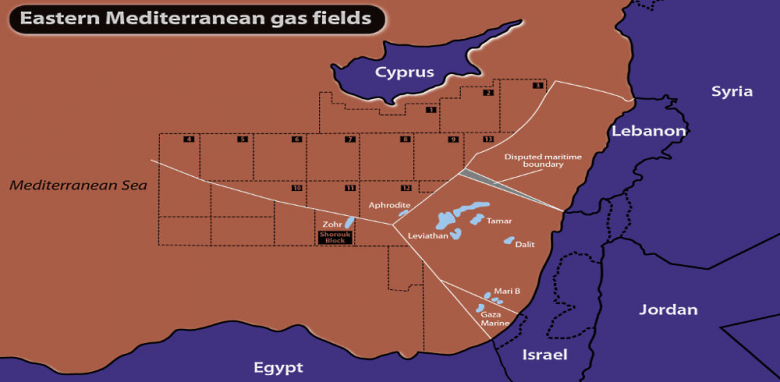
ISRAELI - JORDAN GAS PIPELINE: $10 BLN

BLOOMBERG - A pipeline to transport $10 billion worth of natural gas over 15 years from Israel's Leviathan field into Jordan will be completed by the end of 2019, according to the company buying the fuel.
Engineers building a 65-kilometer (40-mile) pipeline from Jordan's border with Israel northward across Mafraq province will finish their work on time to receive first gas from Leviathan at the start of 2020, Abdel Fattah Daradkeh, director general of Jordan's National Electric Power Co., said in a phone interview. A section of pipeline to move gas from the offshore field through Israel to the border is also under construction, he said.
After years of legal and regulatory logjams, the companies developing Leviathan are making significant progress to honor multibillion-dollar export deals. About 54 percent of the nearly $4 billion Leviathan project has been completed, the companies said this week. Jordan, with negligible energy resources of its own, would become Israel's first buyer for gas from the Mediterranean reservoir.
Nepco agreed in September 2016 to buy about 3 billion cubic meters of gas per year from the Leviathan partners, under a 15-year contract. That supply, coupled with renewed flows of Egyptian gas in the future, will be enough to meet domestic demand by 2020, Jordan's Minister of State for Media Affairs and Communications Jumana Ghunaimat said Tuesday in a phone interview.
The Israeli government has pushed for gas exports as a way to strengthen economic ties with Arab neighbors. Gas from Israel's Tamar field has been flowing to Jordan since the beginning of 2017.
Jordan imported gas from Egypt until attacks by militants on the Egyptian pipeline network and rising local demand led the North African nation to halt shipments in 2013. Egypt is on track to export gas again since the discovery in 2015 of the mammoth Zohr field. Jordan will start receiving liquefied natural gas from Egypt under a seven-year deal from Jan. 1, Jordanian former Energy Minister Saleh Al-Kharabsheh said in April.
-----
Earlier:

2018, March, 11, 11:10:00
ISRAELI GAS FOR EUROPEREUTERS - Israel expects a decision to go ahead with the construction of a 2,000 kilometer (1,243 mile) pipeline linking vast eastern Mediterranean gas resources to Europe to be made by early 2019, Israeli Energy Minister Yuval Steinitz told Reuters. |

2017, December, 6, 12:15:00
MEDITERRANEAN GAS FOR EUROPEPENNENERGY - significant deposits already discovered in the east Mediterranean, including Israel's Leviathan field are "just the tip of the iceberg" and that "it's very likely" that more gas will be found in Cypriot waters. |

2016, September, 30, 18:35:00
AN IMPORTANT ISRAELI GASEurope sees Israel and the region as an important supplier of gas to Europe
|

2016, June, 20, 18:05:00
LEVIATHAN'S DEVELOPMENTAccording to a development plan approved this month by the energy ministry, Leviathan's three anchor customers for its phase 1 development are expected to be the domestic Israeli market, the Jordanian power company Nepco and the Egyptian consortium Dolphinus Holdings, which was supposed to purchase gas from Tamar last year in a deal that has not materialized. |

2016, April, 26, 20:00:00
RUSSIA & ISRAEL GAS TALKSPutin's interest in Israeli gas is neither secret nor new. In 2012 Russia's Gazprom discussed the possible purchase of a 30% stake in Israel's offshore Leviathan gas field. In 2013 Gazprom signed a contract to purchase much of the Tamar gas field's production but the contract wasn’t approved by Israel's Energy Ministry. |

2016, March, 29, 18:45:00
ISRAELI GAS DECISIONCritics said the deal gave too much profit to corporations at the public's expense. The court opposed a clause that would prevent Israel from making significant regulatory changes for the next ten years. |

2016, March, 19, 19:00:00
ISRAEL & RUSSIA COLLABORATIONIsrael and Russia are about to agree upon a modus operandi in the East Mediterranean concerning weapons and natural gas deals, several Israeli media reports indicate. According to various assessments, the bottom line of such an agreement would be that Israel will not sell natural gas to Turkey and, in return, Russia won't supply S-300 anti-aircraft missiles and other advanced weapon systems to Iran and other regional enemies of Israel. |








